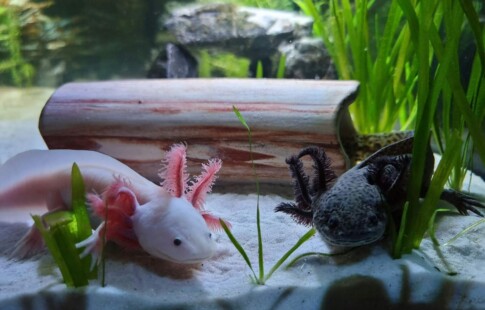
10 Best Sustainability Graduate Programs
We are reader-supported. When you buy through links on our site, we may earn affiliate commission.
Cities and companies worldwide have put eco-friendliness at the forefront of policies and operations. To develop viable green solutions for the climate crisis, prospective graduate students should enroll in the best sustainability graduate programs available.
Higher education in sustainability prepares students for green design, energy engineering, education, conservation, natural resource management, and corporate sustainability compliance, among other fields. The result is always a rewarding career that positively impacts people and the planet.
1. Harvard University
Harvard University’s sustainability master’s degree program delivers an in-depth study of human-nature interactions and ways to adapt to global environmental change.
Throughout this 12-course program — offered online or in-person — students gain leadership and engagement skills for grassroots and corporate settings. Additionally, they learn about crucial political, social, technological and economic standards that aid green development.
2. Florida State University
Florida State University (FSU) has four graduate-level sustainability programs: Urban Regional Planning, Sustainable Energy, Aquatic Environmental Science, and Social and Sustainable Enterprises. The fourth program culminates in an online Master of Science in Entrepreneurship (MSE).
The MSE ensures students can assist companies in meeting current market demands without compromising the planet for future generations. Course topics cover ethical management, sustainable branding, human rights in business, and environmental, social and governmental (ESG) investing.
3. Arizona State University — Online
Students interested in the best sustainability graduate programs offered online should consider Arizona State University (ASU). ASU offers four master’s degree programs — Sustainable Food Systems, Sustainable Engineering, Sustainable Tourism, and Sustainability Leadership — to prepare students to lead green initiatives across numerous industries.
Each program comprises 30–31 credits, which students can complete on a flexible academic schedule. These online programs significantly benefit those pursuing higher education while working full-time.
4. Oregon State University
Oregon State University (OSU) offers a Master of Forestry in Sustainable Forest Management and a Master of Science in Sustainable Forest Management.
Curriculum tracks cover soil and water quality, watershed science, road design, ecological restoration, and forest policies and economics. Graduates with degrees in sustainable forestry are crucial to conserving biodiversity.
For instance, conservationists successfully preserved a wolf pack at Lassen Volcanic National Park in California. Wolves are a keystone species, essential for ecological health.
5. University of Miami
Miami, Florida, is at the crux of the climate crisis as rising sea levels and intensifying hurricanes threaten the city. The University of Miami’s (UM) Master of Professional Science in Urban Sustainability and Resilience delivers practical expertise in helping urban communities combat climate change. Core courses include Resilient Community Design, Sustainable Cities, and Housing, Infrastructure and Transportation.
UM also has a Master of Science in Sustainable Business Program where students strategize sustainable initiatives aligned with corporate missions. Nearly 65% of businesses want to advance their sustainability but require someone with the expertise to lead green programs.
6. Texas A&M University at Galveston
Those interested in sustainable coastal and ocean management may pursue a Master of Marine Resources Management at Texas A&M University at Galveston.
Program deliverables couple marine natural resources with conservation management and policy development. Students may pursue careers in fisheries management, oil and gas development, consulting, coastal management, public policy, and non-profits.
7. Hawai’i Pacific University
Imagine pursuing a graduate degree in sustainability surrounded by turquoise waters, rich forest ecosystems, and active volcanoes. The Master of Arts in Sustainability (MASUST) program at Hawai’i Pacific University provides an interdisciplinary look at global and local environmental challenges. Students then formulate sustainable and resilient solutions.
Students receive hands-on practice engaging local stakeholders to understand and advise sustainable strategies for pressing environmental issues. MASUST students are also encouraged to intern at a local business, government entity, or non-profit organization to apply their learning.
8. University of Wisconsin-Madison
Water might be a renewable resource, but only 1% is available for human consumption — meaning sustainable water management is becoming increasingly dire.
The University of Wisconsin-Madison’s Master of Science in Water Resource Management examines current human needs for water resources as students seek ways to ensure its availability for future generations.
Students must complete 30 core credits in natural science and technology, public decision-making, analytical and design tools and a summer practicum related to water resources. Additionally, students must complete 15 credits in their chosen specialty.
9. Lincoln University
Lincoln University in Missouri offers a Master of Science in Sustainable Agriculture that addresses conventional farming practices and sustainable crop production for the future.
Students gain expertise in production, research, and consulting concerning natural resources, animal welfare, soil health, and water conservation. Depending on whether they enroll in the thesis or non-thesis track, students must complete between 30 and 33 credits. Courses may include the following:
- Plant Nutrition and Management
- Soil Management
- Food Safety
- Integrated Pest Management
- Genomics
- Production Economics
Lincoln University also maintains a contract with the University of Nebraska Lincoln to offer some courses online or in a hybrid setting for greater flexibility.
10. Glasgow Caledonian New York College
The fashion industry is responsible for 10% of global emissions — 40% from polyester production. Additionally, fast fashion — mass manufacturing of clothing — leads to excess waste, plastic pollution in oceans, and poor working conditions at textile plants.
A Master of Science in Sustainable Fashion from Glasgow Caledonian New York College (GCNYC) challenges students to develop sustainable solutions within the fashion industry. This 36-credit program is primarily research-based and includes course topics like Business Strategy for the Common Good, Sustainable Fashion Strategy, and Material and Social Considerations.
GCNYC has multiple learning options for students to obtain their sustainable fashion master’s degree. Live courses allow students to attend in-person lectures or log into Zoom, while all classes are held in the evening to accommodate working professionals.
Likewise, the online curriculum provides the same cutting-edge education and faculty in a more flexible learning environment where students can complete their program at their own pace.
A Healthy Planet Depends on Sustainability Experts
You can safeguard the planet for future generations by gaining expert knowledge from the best sustainability graduate programs. Each program delivers a unique interdisciplinary study for students to apply sustainable practices to every industry.
Share on
Like what you read? Join other Environment.co readers!
Get the latest updates on our planet by subscribing to the Environment.co newsletter!
About the author
Grace Waters
Always inspired by the natural world around her, Grace grew up exploring tide pools and hiking mountain trails, developing a deep appreciation for biodiversity and conservation. Now, Grace works as the Senior Editor of Environment.co where she covers topics related to emerging clean technologies, zero-waste initiatives, and the intersection of environmental policy and everyday living.





